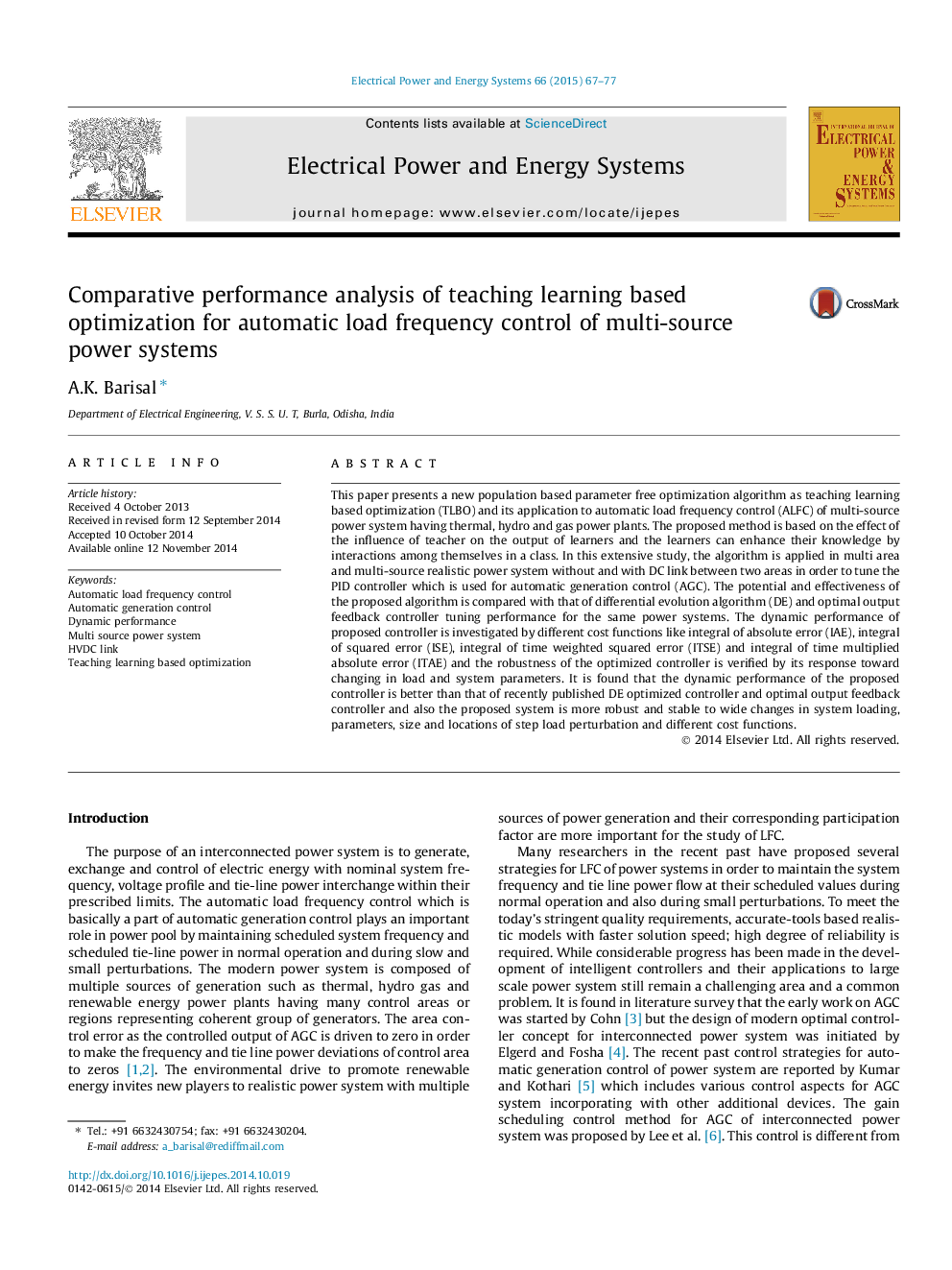| کد مقاله | کد نشریه | سال انتشار | مقاله انگلیسی | نسخه تمام متن |
|---|---|---|---|---|
| 398613 | 1438734 | 2015 | 11 صفحه PDF | دانلود رایگان |
• Application of teaching learning based optimization to AGC problems.
• PID controller gains have been optimized by teaching learning based optimization.
• Dynamic performance is analyzed for single area system and multi area with HVDC link.
• Dynamic performances of TLBO based PID controller are better than DE-PID controller.
• Sensitivity analysis is done to load changes and different cost functions.
This paper presents a new population based parameter free optimization algorithm as teaching learning based optimization (TLBO) and its application to automatic load frequency control (ALFC) of multi-source power system having thermal, hydro and gas power plants. The proposed method is based on the effect of the influence of teacher on the output of learners and the learners can enhance their knowledge by interactions among themselves in a class. In this extensive study, the algorithm is applied in multi area and multi-source realistic power system without and with DC link between two areas in order to tune the PID controller which is used for automatic generation control (AGC). The potential and effectiveness of the proposed algorithm is compared with that of differential evolution algorithm (DE) and optimal output feedback controller tuning performance for the same power systems. The dynamic performance of proposed controller is investigated by different cost functions like integral of absolute error (IAE), integral of squared error (ISE), integral of time weighted squared error (ITSE) and integral of time multiplied absolute error (ITAE) and the robustness of the optimized controller is verified by its response toward changing in load and system parameters. It is found that the dynamic performance of the proposed controller is better than that of recently published DE optimized controller and optimal output feedback controller and also the proposed system is more robust and stable to wide changes in system loading, parameters, size and locations of step load perturbation and different cost functions.
Figure optionsDownload as PowerPoint slide
Journal: International Journal of Electrical Power & Energy Systems - Volume 66, March 2015, Pages 67–77
